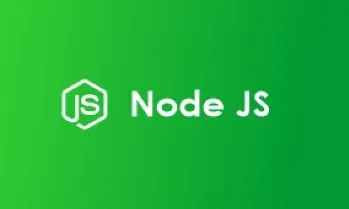
Node Js
Course Overview: Node.js Training Course with Certification in Bangalore
The Node.js Training Course with Certification in Bangalore is designed to provide participants with a comprehensive understanding of Node.js, a powerful server-side JavaScript runtime built on Chrome's V8 engine. This course equips learners with skills to develop scalable, high-performance applications using JavaScript for both client and server-side scripting. Participants will gain insights into essential concepts, features, and best practices for creating robust server-side applications with Node.js.
1. Develop skills to create scalable and efficient server-side applications.
2. Understand the Node.js ecosystem and its tools.
3. Learn best practices and design patterns commonly used in Node.js development.Learn software skills with real experts, either in live classes with videos or without videos, whichever suits you best.
Description
This course starts with an introduction to Node.js, covering its architecture, core modules, and asynchronous programming model. Participants will learn how to use Node.js for building RESTful APIs, handling file operations, and managing application state. The course also delves into advanced topics such as middleware, error handling, and integrating with databases. Practical examples, hands-on projects, and real-world scenarios will be used to reinforce theoretical concepts.1. Gain practical experience with hands-on coding exercises.
2. Build real-world projects that reflect industry practices.
3. Explore Node.js's integration with various databases and front-end frameworks.Course Objectives
The primary objectives of the Node.js course are as follows:1. Introduction to Node.js: Provide an overview of Node.js, its history, and its advantages for server-side development.
2. Core Modules: Explore Node.js core modules for file system operations, HTTP server creation, and more.
3. Asynchronous Programming: Understand the asynchronous programming model in Node.js, including callbacks, promises, and async/await.
4. Express.js: Learn how to use Express.js, a popular web framework for Node.js, to build RESTful APIs and handle routing.
5. Middleware: Introduce middleware functions for managing requests and responses in an Express.js application.
6. Error Handling: Cover techniques for handling errors and debugging Node.js applications.
7. Database Integration: Explore integration with databases such as MongoDB and SQL databases for data persistence.
8. Authentication and Authorization: Learn how to implement authentication and authorization in Node.js applications.
9. Deployment: Cover best practices for deploying Node.js applications in production environments.
10. Performance Optimization: Learn strategies for optimizing the performance of Node.js applications.
11. Testing: Teach techniques for testing Node.js applications to ensure reliability and maintainability.
12. Real-world Projects: Build and deploy real-world projects to apply the concepts learned throughout the course.Prerequisites
1. Basic understanding of JavaScript.
2. Familiarity with HTML and CSS.
3. Knowledge of asynchronous programming concepts.
4. Understanding of server-side programming principles.
5. Experience with using and navigating the command line interface (CLI).
6. Prior exposure to any server-side framework (optional but beneficial).Who Can Learn This Course
This course is suitable for a diverse range of individuals, including:1. Back-End Developers: Professionals aiming to enhance their skills in server-side development using Node.js.
2. Full Stack Developers: Individuals looking to incorporate Node.js as a back-end framework in their full-stack development projects.
3. Web Developers: Those interested in building scalable and efficient server-side applications.
4. Software Engineers: Engineers looking to expand their knowledge of server-side JavaScript and Node.js.
5. Students and Graduates: Individuals pursuing degrees in computer science or related fields with an interest in server-side development.
6. System Architects: Professionals involved in designing and architecting systems where Node.js is a key component.
7. Project Managers: Individuals overseeing software development projects who need to understand Node.js's capabilities and limitations.
8. Anyone Interested in Node.js: Enthusiasts curious about leveraging Node.js for developing high-performance server-side applications.The Node.js course is designed to cater to both beginners and individuals with some server-side development experience, providing a solid foundation in Node.js concepts and practical skills for building modern server-side applications.
Course Curriclum
Training Features
Comprehensive Curriculum
Master web development with a full-stack curriculum covering front-end, back-end, databases, and more.
Hands-On Projects
Apply skills to real-world projects for practical experience and enhanced learning.
Expert Instructors
Learn from industry experts for insights and guidance in full-stack development.
Job Placement Assistance
Access job placement assistance for career support and employer connections.
Certification upon Completion
Receive a recognized certification validating your full-stack development skills.
24/7 Support
Access round-the-clock support for immediate assistance, ensuring a seamless learning journey.
Upcoming Batches
Placed Students
Enroll now and join our alumni.
Explore More Courses
Enroll for : Node Js
Start Date: 2024-10-01
Mentor: Working Professional
Duration: 3 Months
